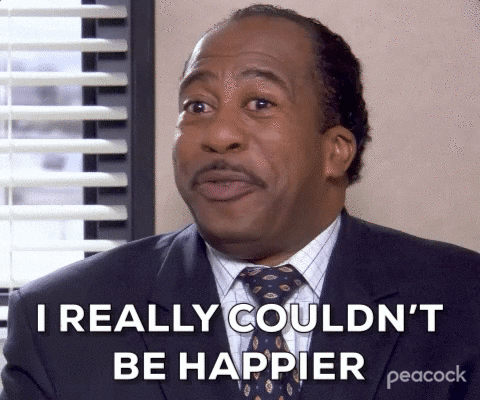How happiness varies by age
Plus, can self-compassion save you money?
“When you have one person who is particularly problematic, the disruption it causes can have a disproportionately negative effect on the team overall.” –psychologist Anita Woolley
BRAIN WAVES
What’s my age again? The best years of your life might not be when you think they are. A new study came to a surprising finding: life gets more satisfying as we age. Researchers looked at hundreds of data samples from studies involving a total of 460,902 participants. They found that life satisfaction decreases between the ages of 9 and 16, but then gradually increases until the age of 70. From there, it dips – likely because of issues with health and social life – but picks back up again after age 96. In addition to life satisfaction, the researchers also looked at positive and negative emotional states. “Overall, the study indicated a positive trend over a wide period of life, if we look at life satisfaction and negative emotional states,” co-author Susanne Bücker said in a press release. As other researchers have pointed out: there’s a good chance that the best years of your life are still awaiting you.
Bye-bye buy? There are lots of benefits to self-compassion. Could saving money be one of them? In a recent study, researchers had people rate themselves in four domains: self-compassion, materialism, self-control and impulse buying. Then, they gave some of the people an intervention, which was a two-week online course titled “Positive Self.” The course guided volunteers through a series of meditations designed to help people feel more compassionate towards themselves. Weeks later, the researchers surveyed everyone again. They found that the people in the self-compassion group reported a decline in both materialism and impulsive spending habits. The effects were short-term and the answers self-reported, but the researchers hypothesize that it suggests there’s a relationship between consumption and self-compassion. “With self-control resources exhausted, the ability to control one’s own behavior is weakened and may result in problematic behaviors such as impulse buying,” they said. “It is likely that when people become more self-compassionate, there is less need for them to seek their meaning and identity in possessions.”
Self-justification. After we make a decision, we often tell ourselves a story about why our choice was the right one to make. These rationalizations can sometimes be harmful. But are there also times when self-justification can be used for good? Listen to learn more.
ON THE HIDDEN BRAIN PODCAST
The Secret to Great Teams: It’s easy to think that the best teams are collections of highly accomplished or talented individuals, working under a skilled leader. But that’s no guarantee of success. Psychologist Anita Woolley says the best teams are far more than the sum of their parts, and share certain basic characteristics.
ON THE MY UNSUNG HERO PODCAST
Tessa West’s Story: As Tessa said her last goodbye to her dying father, a family friend made the experience feel just a little bit easier.
Don’t forget to send us the story of your unsung hero! Record a voice memo on your phone and email it to myunsunghero@hiddenbrain.org.
ON HIDDEN BRAIN+
Tapping Your Mind's Power: We think of our mental health being completely separate from our physical health. But psychologist Ellen Langer tells us the body and mind are connected in surprising ways.
Have you tried out Hidden Brain+ yet? You can find it by searching for our show in the Apple Podcasts app, or by going to apple.co/hiddenbrain.
FROM OUR LISTENERS
MIND GAMES
14,500 people sit in a stadium. One of them is picked out. What are the chances that the person's birthday is on a Sunday?
LAST WEEK’S PUZZLE
If you multiply this number by any other number, the answer will always be the same. What number is this?
The answer: Zero!
A MOMENT OF JOY
The psychology of lying, explained
Have an idea for Hidden Brain? A story you want to share with us? Send an email to ideas@hiddenbrain.org. Listen to us on Spotify, Apple, Amazon Music or your favorite podcast platform.




